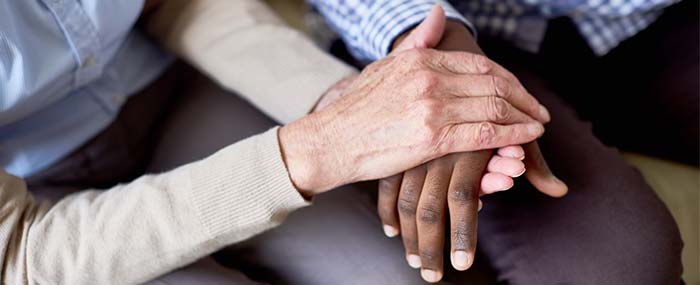No two people are alike, and neither are their experiences with trauma. What one person may find distressing, another may not. However, there are some generalities that can be drawn when it comes to what it takes to recovery from trauma. In order to heal, individuals must be willing to do the work and have a support system in place. Additionally, regular exercise and good nutrition play a role in the healing process. If you or someone you know is struggling to cope after a traumatic event, keep an eye out for warning signs and seek professional help when necessary.
One definition of trauma is a deeply distressing or disturbing experience. This could be something that happens to you directly, such as being in a car accident or being the victim of a violent crime. It could also be something that you witness, such as seeing a loved one suffer an injury or being exposed to graphic images.
Not all traumas are the same, and not everyone responds to trauma in the same way. Some people may experience symptoms of post-traumatic stress disorder (PTSD) after a traumatic event. PTSD is a mental health condition that can cause flashbacks, nightmares, anxiety, and other symptoms.
If you have experienced or witnessed a traumatic event, it is important to seek professional help if you are struggling to cope. There is no shame in seeking help, and there are many resources available to support you on your journey to recovery.

Why the healing process is different for everyone
The healing process from trauma is different for everyone because the human brain is unique and people have different levels of resilience. The brain processes information differently for every individual, which can impact how a person copes with trauma. Additionally, people have different support systems in place, which can also affect the healing process. Some people may have a strong network of family and friends to rely on, while others may not. Finally, some people may be more resilient than others and be able to bounce back from a traumatic experience more quickly.
Elements of a successful trauma recovery
Different people have different levels of resilience, which means that the healing process from trauma is different for everyone. However, there are some elements that are necessary for a successful recovery from trauma. These elements include having a supportive network of family and friends, maintaining a regular exercise routine, eating a nutritious diet, and getting adequate sleep. Additionally, stress management is an important part of the readjustment process.
A supportive network of family and friends is crucial for the healing process. This support system can provide practical help, emotional support, and social engagement. It is important to have people to rely on during this difficult time.
Exercise is also an important element of the readjustment process. Exercise releases endorphins, which have mood-boosting effects. Additionally, exercise can help to reduce stress levels and improve sleep quality. It is important to find an exercise routine that works for you and stick with it.
Eating a nutritious diet is another important element of the readjustment process. A healthy diet can help to reduce stress levels and improve energy levels and mood. It is important to eat plenty of fruits, vegetables, whole grains, and lean protein. Avoid processed foods and foods high in sugar or fat.
Getting adequate sleep is also essential for the readjustment process. Sleep allows the body to heal and repair itself. It also helps to reduce stress levels and improve moods. It is important to get at least eight hours of sleep per night.
Finally, stress management is an important part of the readjustment process from trauma. Stress can impede the healing process and make symptoms worse. There are many different ways to manage stress, such as meditation, yoga, deep breathing exercises, journaling, and spending time in nature
Warning signs that indicate you might not be ready to heal
One of the most important things to keep in mind when healing from trauma is that the process looks different for everyone. Just because someone you know was able to “bounce back” quickly does not mean that you will be able to do the same. It is important to be patient with yourself and understand that the healing process takes time.
There are some warning signs that indicate a person might not be ready to heal from trauma. These warning signs can include:
-Denial about the event: It is common for people who have experienced a traumatic event to want to pretend that it never happened. This is a defense mechanism that allows them to avoid feeling pain or dealing with the reality of the situation. However, denial can prevent a person from healing because it does not allow them to process their emotions or work through their trauma.
-Ongoing symptoms of post-traumatic stress: If you are still experiencing symptoms of PTSD such as flashbacks, nightmares, anxiety, and depression, it may be an indication that you are not ready to heal from your trauma. These symptoms can be debilitating and make it difficult to function in day-to-day life. If you are struggling with PTSD, it is important to seek professional help.

-Difficulty forgiving oneself or the perpetrator: It is natural to feel anger and resentment after experiencing a traumatic event. However, if you find yourself dwelling on these negative emotions and struggling to forgive yourself or the perpetrator, it may impede your ability to heal. holding onto anger and resentment will only make you feel worse and prevent you from moving on with your life.
-Continued avoidance of people or situations that remind you of the trauma: It is common for people who have experienced trauma to want to avoid anything that reminds them of the event. While this may offer some temporary relief, it ultimately prevents healing because it does not allow the individual to confront their fears and work through their emotions. If you find yourself avoiding people or situations that remind you of your trauma, it may be an indication that you are not ready to heal.
When to seek professional help
It is important to seek professional help if you are struggling to cope with the aftermath of a traumatic event. A therapist can provide you with the support and guidance you need to work through your trauma and begin the healing process. Some symptoms that indicate you should seek professional help include intrusive thoughts or memories of the event, nightmares or flashbacks, avoidance of people, places, or things that remind you of the event, feelings of detachment or numbness, difficulty sleeping, irritability or anger, anxiety or panic attacks. If you are experiencing any of these symptoms, it is important to reach out for help.
The conclusion of the trauma recovery process is important to note that there is no one “right” way to heal, and that the process looks different for everyone. The key points highlight the importance of having a support system, regular exercise, and good nutrition. It is also important to seek professional help when you are ready to face your trauma.
















